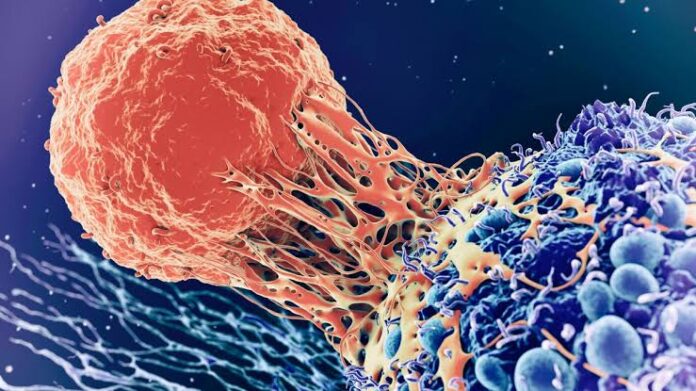Cancer has continued to decimate populations across countries as it tops the list of diseases that are erratically reducing the welfare and wellness of persons, particularly, in developing countries like Nigeria.
Statistics provided by the World Health Organisation’s 2020 report shows that cancer tops the list of killer diseases with nearly 10 million deaths.
Nigeria has one of the highest cancer mortality rates in the world, with approximately four out of five cases resulting in death, according to the Global Cancer Observatory.
There is lack or no efficient public policy on cancer issues in Nigeria where about 10,000 cancer deaths are recorded annually with 250,000 new cases recorded yearly.
As reported not a few have lost their lives to cancer of various types. The list of course includes notable Nigerians.
While successes in cancer treatment is improving in the developed world with near 100 percent cure rates recorded in certain instances, the situation could be better in Nigeria where mortality from cancer is on the rise.
According to statistics by the World Health Organisation, WHO, cancer was responsible for over 78,800 deaths in 2020 with women often bearing the brunt, as breast and cervical cancers are responsible for the most deaths in Nigeria. Data also showed that at least 44,699 women died of cancer in 2021.
Globally, the WHO notes that cancer treatment, prevention and care has generally improved globally. In many of these countries, cancer is no longer a death sentence, rather, it is a chronic non-communicable disease that can be prevented, detected early and treated with better outcomes.
Regrettably, the situation in Nigeria paints a dismal picture. Currently, the situation about cancer care leaves much to be desired. From diagnosis and treatment, to care and support, cancer has more or less remained a death sentence even among the wealthy.
A common reason for the rising incidence of cancer morbidity and mortality is due to the fact that the federal and state governments are still paying lip service to issues around health.
In their argument, health watchers blame the low-level or absent funding, bad policy implementation and lack of political will and commitment for the persistence of the clogs in the wheel of progress of the fight against the menace of cancer.
In 2018, the Federal Government developed a Cancer Control Plan, a 4 -year programme with a vision to reduce the incidence and prevalence of cancer over the next five years and beyond. This was also to involve state governors so that each state would have its own cancer control facility in order to plan, and key into the federal government’s wider programme.
The plan also includes investment and provision of prostate cancer screening for men, cervical and breast cancer screening for women. But three years on, the plan is yet to take off as expected.
Nigeria was part of the historic 2001 Abuja Declaration, which mandates African Union Member States to allocate minimum of 15% of their national budgets to healthcare, but Nigeria is yet to fulfill this recommendation.
The national health budgetary allocation for 2022 is below six percent even as political office holders continue to take flight for medical treatment overseas, depleting the country’s foreign reserve and promoting medical tourism that consumes over $1 billion annually.
Undoubtedly, the cost of treating cancer remains prohibitive. Most Nigerians pay out-of-pocket for their medical treatment as the National Health Insurance Scheme has not been able to capture some of these high cost therapy cases.
But irrespective of the type of cancer, the average cost of treating cancer comprehensively for one individual is estimated at N20 million for chemotherapy, overall over time. Millions of Nigerians are unable to afford same given our minimum wage of N30,000.
For decades, Nigeria has lacked comprehensive cancer centres covering the six geo-political zones of the country where all cancers and care around the disease can be taken care of.
We call for more advocacies by all tiers of government towards enhancing responses to early detection which could mitigate the incidence of full-blown situations.
Indeed, more funding and establishment of first class cancer centres in replication of what obtains in other countries would be an advantage for the nation.





